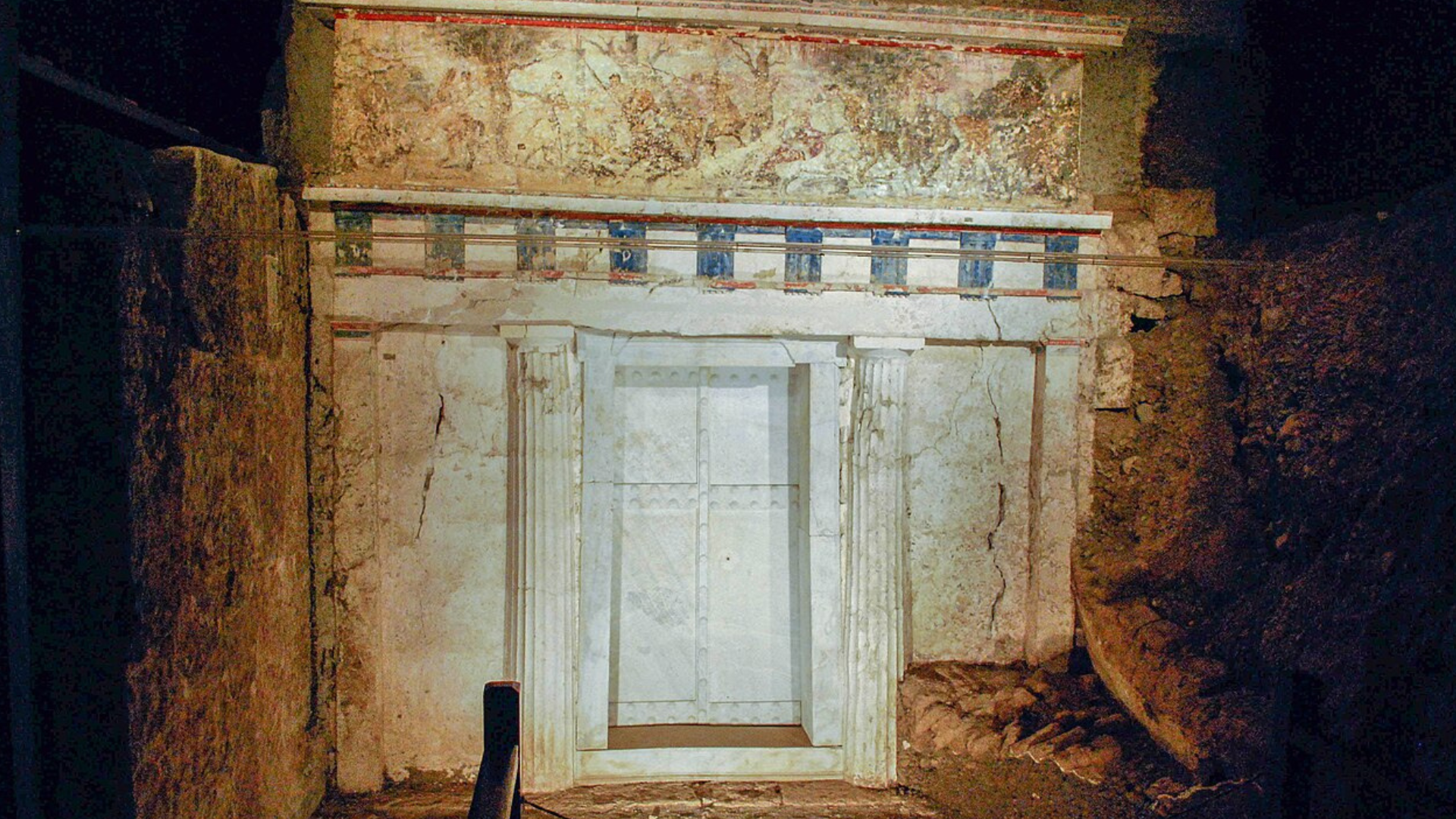Nearly five decades ago, archaeologists brought to light a remarkable find while excavating the ancient settlement of Vergina in northern Greece. Within three royal tombs dating back to the 4th century BC, they discovered remains believed to belong to the family of Alexander the Great.
At the time, they were deemed to be the great warrior’s father, son and elder half brother. But scientists suggest the father and the half brother have been caught up in a case of mistaken identity.
According to dailymail.co.uk, in a groundbreaking study led by Antonios Bartsiokas, a professor of anthropology at the Democritus University of Thrace in Greece, experts now ‘conclusively’ reveal that the skeleton long identified as belonging to the half brother is in fact the father, and vice versa.
‘The skeletons studied are among the most historically important in Europe,’ Professor Bartsiokas and colleagues say.
While the resting place of Alexander the Great is unknown, researchers discovered three tombs at Vergina in 1977 – referred to as tombs I, II and III.
At the time, archeologists proposed they contained the remains of Alexander the Great’s father (Philip II), his son (Alexander IV) and his half-brother (Philip III of Macedon).

Most scholars agree that Tomb III belongs to Alexander IV, the teenage son of Alexander the Great, but ‘strenuous debate’ over the other two tombs ‘continues unabated’.
Researchers studied X-rays of the skeletons and referred to ancient writings about each figure, together with their anatomical characteristics and any physical issues.
They conclusively identified Tomb I as containing Alexander the Great’s father and Tomb II to contain Philip III of Macedon – not the other way around as previously assumed.
Within Tomb I lie the remains of a woman and an infant, identified by researchers as Cleopatra, the young wife of Philip II, and their newborn child. Professor Bartsiokas acknowledges that this detail should have been a decisive clue, yet scholars initially misidentified her.
Crucially, documents reveal Philip II of Macedon suffered a severe traumatic injury to the left knee, a detail supported by skeletal evidence found within the tomb.
‘A knee fusion was found in the male skeleton of Tomb I consistent with the historic evidence of the lameness of King Philip II,’ the new study points out.
Source: dailymail.co.uk

